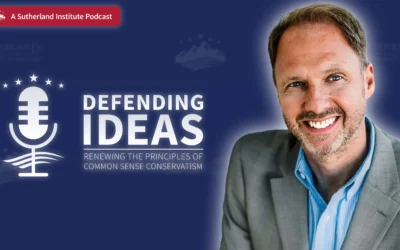
Written by Sutherland Institute
March 6, 2019
The following testimony was given by Stan Rasmussen, Sutherland Institute vice president of government affairs, to members of the House Economic Development and Workforce Services Committee on March 5, 2019.
Representatives,
A reasonable vision of justice and the rule of law require that a criminal penalty be applied for nonviolent offenses against the law – such as low-level drug possession, traffic infractions and nonviolent misdemeanor crimes – but also that the government do what it can to get out of the way of people who meet the demands of justice and pay their debt to society for such offenses. HB 431 – Expungement Act Amendments promotes both by waiting until a nonviolent criminal penalty has been served – including a period of several years post-sentence without any further criminal behavior – and then automatically expunging these criminal records so that these individuals can have a clean slate upon which to build a new life and again become productive members of society, rather than a drain on taxpayer resources.
The facts suggest that there will be significant benefits to the public ensuing from the policies contained in HB 431. Just one year after an individual’s criminal record has been cleared, they are 11 percent more likely to be employed and they earn 22 percent higher wages. Data on expungement from Salt Lake County shows that six months after expungement, individuals had obtained either better housing, a better job or higher income, and all had reported a higher quality of life. The self-reliance facilitated by HB 431 will benefit not only ex-offenders themselves, but their families and communities, as well as taxpayers whose financial burden diminishes due to reduced recidivism and welfare costs.
We recognize that, for some former victims and their families, seeing a former offender moving on with and prospering in their life is objectionable. However, it should also be recognized that the government imposing lifetime barriers to employment, housing, and economic self-reliance for a nonviolent criminal offense does not promote justice, the rule of law, or the public good.
We encourage you to support HB 431.
Thank you.
More Insights
Read More
How much money did the top ten ranking high schools spend per student?
Research suggests that the issue is complicated, that money does matter for school performance, and how it’s spent matters a great deal.
Why we need to fix Social Security within 10 years
On this episode we sit down with an expert to dispel some of the myths about the state of retirement today and offer a framework for how to fix Social Security before it’s too late.
Conservatives’ Golden Opportunity to Win the Minimum-Wage Argument
Election year offers conservatives an opportunity to deliver a pro-worker message that can win over persuadables on the minimum-wage debate.


